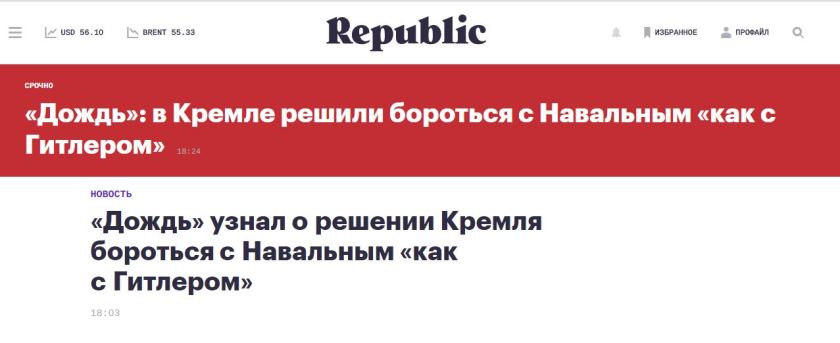Anonymous sources “close to the Kremlin” told independent outlet Dozhd the presidential administration is about to launch a campaign to discredit Alexey Navalny, Russia’s main opposition figure and presidential candidate. At the same time, a website claiming to reveal the “secret details” about “politicians, social activists and their organizations” released alleged bank statements claiming an anticorruption organization created by Navalny is funded thanks to an illegal “slush fund”.

The campaign against Navalny was decided after protests, called by the opposition leader, lead to a 10 point drop in the Prime minister’s popularity rating, Dozhd wrote. Held in more than 80 russian cities on the 26th of March, the protests followed a film released by Navalny’s “Fund Against Corruption” claiming Medvedev was the owner of several luxurious properties in Russia and abroad. So far, “He’s not Your Dimon” (the title of the film) has been watched nearly 20 millions times on Youtube.
Several methods could be used against Navalny, with a source telling Dozhd an external department was already “shooting clips and movies” aimed at discrediting the opposition candidate.
Dirty media campaigns against opposition leaders are far from uncommon in Russia. Last year, a film aired by the Kremlin-friendly “NTV” channel showed opposition figure and former Finance minister Mikhail Kasyanov in bed with a co-worker, a move largely described as a Kremlin operation to discredit Kasyanov.
Kasyanov was at the time one of the most important figure in the PARNAS party -a coalition of opposition movements- and, as such, didn’t need to participate in the party’s primaries to get on the ballot.
NTV’s film, aired just before the primaries, was quite successful in sowing discord into an already divided opposition, with Navalny asking for Kasyanov to step down from his position.
The 26th of March protests, the biggest in years, have turned Navalny into the uncontested leader of Russia’s “non-systemic” opposition, and even attracted sympathy from some members of the establishment who criticized the official response to the protests.
But the Kremlin, it seems, has decided that enough was enough. A communist deputy who was planning to ask Medvedev about Navalny’s investigation was reined in by his party and forbidden to ask any questions , Vedomosti reported.
And though Dozhd claims the campaign against Navalny has not begun yet, the report’s release coincided with the publication by little-known website “Infotrader” of an article claiming Navalny’s “Fund Against Corruption” benefited from a RUB25m “slush fund” owned by Roman Rubanov, the organization’s director. The claims, which allegedly originates from a hacked bank statement and chat app conversations, were picked up by pro-Kremlin outlets LifeNews and Vzglyad.
All of Infotrader’s posts have been aimed at opposition figures. The first one, published in August of last year, claimed to release emails from the account of Leonid Volkov, Navalny’s campaign manager.
Volkov denied his account was hacked, saying Infotrader had used emails from previously hacked accounts of opposition members as fake proof. News of the alleged hacking was also immediately picked up by LifeNews at the time.
Despite a noticeable rise in popularity, no one really believes Navalny could beat Putin (who still enjoys stellar popularity ratings) in next year’s presidential election. But the opposition candidate, the Kremlin fears, could prevent Putin from being elected with a large mandate: according to media reports, the presidential administration has set a “70/70” target for the election, meaning Putin should be elected with a 70% score and amid a 70% turnout. With such an ambitious objective, Navalny could be a problem.